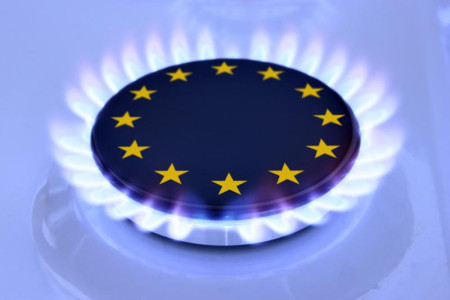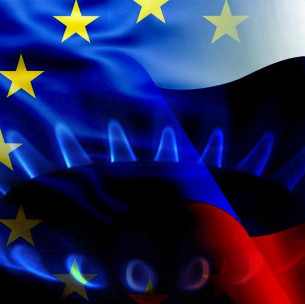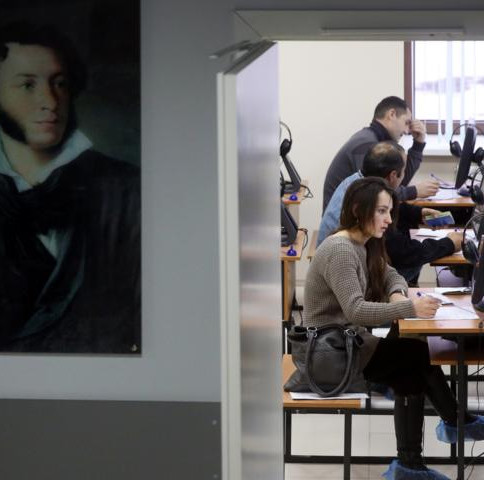
Russian gas is here to stay in Europe. And there may be more of it if the buyers wish. Moscow is ready to supply its energy to European countries via the surviving Nord Stream 2 pipeline thread, as stated by Russian President Vladimir Putin in his interview with America’s Tucker Carlson. He explained that the current German authorities are not guided by national interests, but bend to the collective West’s interests. "It is not only about Nord Stream 1, which was blown up, and Nord Stream 2 was damaged, but one pipe is safe and sound, and gas can be supplied to Europe through it, but Germany does not open it. We are ready, please," the national leader noted. And then he recalled the closure of the Yamal—Europe gas route by the Polish authorities, which also allows for a large flow to Germany.
Meanwhile, the Swedish Prosecutor's Office has wrapped up investigation into Nord Stream blasts, claiming "there is nothing to indicate that Sweden or its citizens were involved in the Nord Stream sabotage, so the case has been dismissed."
Germany’s own probe is still underway, though Russia has never been allowed to engage. Probably, nothing will come of it as well. The German Prosecutor General's Office is currently providing no extra information. But "tardiness" and "silence" are unlikely to affect the inquiry’s quality and desire. It's a political matter with no intention to confirm an American hand. Tellingly, German Chancellor Olaf Scholz was in the United States when Putin's interview went public, and during his meeting with president Joe Biden, both dubbed it "ridiculous."
So far, Russia has been increasing its pipeline gas supplies to the EU. In January, relevant exports grew by 40 percent as compared to the same month last year, and amounted to 2.52 billion cubic meters. The figure was provided by the gas transportation system of Ukraine and the Turkish Stream’s second line.
However, a stable trend is unlikely. European bureaucracy has ignored market necessities, as it advocates for a prompt "zeroing out" of Russian energy supplies.
Meanwhile, the February spot price of gas in Europe has exceeded $300 per thousand cubic meters — next lower order than spring of 2022 peak values, when the TTF hub featured some $4,000 per thousand cubic meters. Since early February, Europe’s wind power generation has been covering an average 25 percent of the region's electricity needs, as reported by the WindEurope association. A year ago, the wind farms’ share was 16 percent.
But European energy security issue has not been solved for subsequent seasons. The region relies more heavily on renewables that cannot guarantee stable generation. In addition, Europe had to look for new suppliers capable of meeting its needs after waiving Russian gas. This implies that European countries have to compete for liquefied natural gas (LNG) with other parts of the world, primarily Asia, while becoming increasingly dependent on the "freedom molecules" as American LNG is often referred to.
Certain nuances come into the picture here — US LNG exports has suddenly turned limited, as January 26 saw president Biden halt new licenses. The official White House statement explains the resolution by the need to study supply effects on US energy security and climate change. In this regard, Republican congressmen condemned Biden and opposed the move, calling it a "gift to Putin." Foreign Policy wrote the following about their argument: "Biden’s LNG export pause weakens global energy security and undercuts our efforts to help Europe reduce its reliance on Russian energy."
The White House's decision to suspend licensing of new LNG export projects has caused outrage in the industry, too. The US authorities’ "limiting initiative" causes reputational damage to the entire LNG industry and undermines long-term trust in it, Shell CEO Wael Sawan told Financial Times.
Biden hastened to "extinguish" the panic, asking US Deputy Energy Minister David Turk to address the US Senate. When doing so, the latter assured the audience that the decision would not affect fuel supplies to American allies, Europeans included.
Another danger for the EU is the obscure prospect of extending the Russian gas transit regime to Europe via Ukraine. On January 25, Slovak Prime Minister Robert Fico, having paid a visit to Kiev and talked to his Ukrainian counterpart Denis Shmygal, allowed for further Russian gas transit through Ukraine in 2025. But the latter expressed unwillingness to extend the transportation contract with Moscow. And yet, the Ukrainian Cabinet admitted discussions of its gas transmission network use with an EU member state. Moscow voiced its stance on January 27, as Energy Minister Nikolai Shulginov told reporters that "a decision on extending the transit of Russian gas through Ukraine to Europe is likely to be found."
In general, risks to the EU's energy security are on the rise, even amid its formalized economic degradation. On February 10, Bloomberg predicted Germany’s loss of its "industrial superpower" status. The agency's piece on that country’s industrial production reads that its once European largest economy has been declining since 2017, entailing lower competitive edge. "The underpinnings of Germany’s industrial machine have fallen like dominoes", Bloomberg writes, adding that Europe’s economic engine is breaking down, with its energy-intensive industries facing major issues after doing away with cheap gas supplies from Russia.









